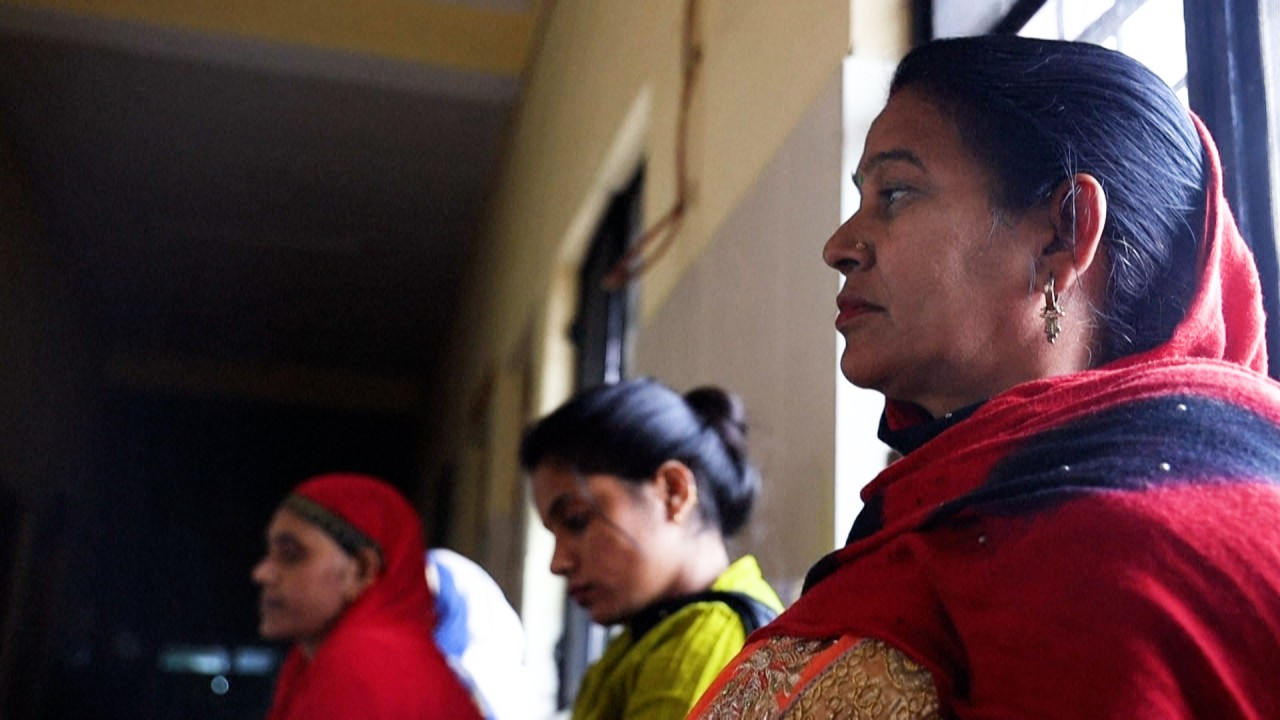
Do India’s ‘funny’ Mother’s Day gifts subvert ‘supermum’ trope or reinforce gender roles?
- Acknowledging and portraying exasperation, anger of mothers are initial steps to change stereotypes of ‘selfless’ mums who are ‘devoted to families’
- India needs social and collective care so that mothers can be freed to focus on responsibilities, interests outside the home and family, says an Indian writer
Picture this: an Indian woman warns her son that she will complain about his misbehaviour to his father. With a rolling pin in her hand, she berates him for being glued to his mobile phone all day. She also cajoles her son to eat whatever has been cooked and to not make unfair demands.
These items, which put a funny spin on the anger and exasperation of mothers, appear to challenge the perception in India of mothers as figures who epitomise sacrifice.

Acknowledging such realities are initial steps to shifting the stereotypes of mothers being “selfless” and “devoted to families”, gender studies experts say.
“Mothers can get angry and frustrated while doing their chores all day,” said Sucharita Sarkar, associate professor of English at Mumbai-based DTSS College of Commerce.
“The new variety of merchandise is welcoming humour to depict the exhaustion of mothers. It takes away the mask of motherhood by telling people how mothers feel, and starts an uncomfortable conversation on their many emotions,” said Sarkar, who studied mothering narratives in contemporary India.
Such items feature the common refrains of Indian mothers. For instance, a coffee mug features a woman saying in Hindi, “you will understand when you have your own kids”. On another cup, a mother is portrayed yelling, presumably at a child still asleep, “useless fellow, get out of bed!”.
Rolling pins and broomsticks, household items that Indian mothers typically point at misbehaving children, also feature on the merchandise.
The depiction of these items acknowledge the “resisting and non-normative mothers”, said Sarkar, and “send a message that mothers are not perfect”.
Women are either categorised as stay-at-home mums, or “supermums” who balance household responsibilities and a full-time job, said Sarkar.
In Sarkar’s 2020 paper on mothers in India, she analysed a cartoon by a popular local brand of butter that featured a woman juggling her professional work, tending to housework and helping her daughter with school assignments. The cartoon’s tagline said, “favourite all-rounder”, in a nod to the mother balancing responsibilities.
“There is a tendency to glorify motherhood without empowering them, to maintain the status quo in the patriarchal society. The glorification is a compensatory strategy without asking whether they are happy about what they are doing or not,” Sarkar said. “Mothers also get swayed by the glorification.”

The messages on the merchandise do not “glorify” mothers’ sacrifice and keeps it real, with a mother complaining that she has become a domestic helper and another saying that she gets no help from anyone.
But this often creates an impression of constantly whining and nagging mothers, said author Kiran Manral.
“While deifying mothers is one extreme, vilifying them is another,” said Manral, author of Karmic Kids: The Story of Parenting Nobody Told You. “It’s natural to get annoyed while holding the house together, one must be empathetic to mothers, and not make fun of their annoyance.”
This could reinforce the belief that only mothers are responsible for running the family while fathers remain the key decision-makers and breadwinners, said Sarkar.
“The conversation on motherhood has to change by incorporating the belief that other family members need to contribute equally to the household work and mothers can be decision-makers as well,” she said.
Will India’s surrogacy ban drive childless couples and poor women underground?
Amrita Nandy, author of Motherhood and Choice: Uncommon Mothers, Childfree Women, said that women’s traditional roles as carers are never challenged seriously in Indian culture.
India needs social and collective care so that the relentless work of homebound caregiving that women have carried for generations can shift away, and free women’s bodies, hearts and minds for making greater decisions and endeavours, she argued.
“We need a larger, consistent and serious overhaul for that to happen,” she said.

